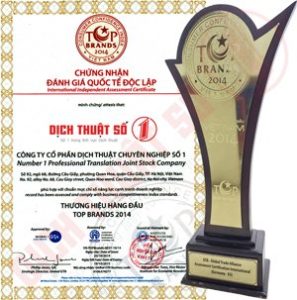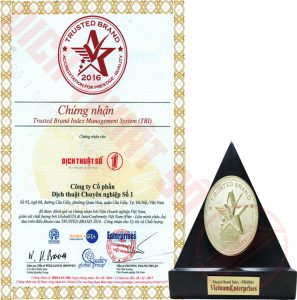Russian is the official language of the Russian Federation, spoken by over 258 million people worldwide. It is one of the six official languages of the United Nations and is widely used in many fields such as science, technology, education and diplomacy. Therefore, learning and studying Russian will be the key to integrating with this great power.
It is one of the six official languages of the United Nations and is widely used in many fields such as science, technology, education and diplomacy. Therefore, learning and studying Russian will be the key to integrating with this superpower.
Introduction to Russian
What is the English name of “Russian”? Russia in English is Russia. So Russian in English is Russian language.
Russian (Русский язык, Russkiy yazyk) is an East Slavic language, derived from Old Slavic, spoken by East Slavic tribes as early as the 6th century AD. It is the official language of Russia and is used as an official or semi-official language in Belarus, Kazakhstan, Kyrgyzstan, and is widely spoken throughout the Baltic states, the Caucasus, and Central Asia.
Old Russian, also known as Old East Slavic, began to split into Russian, Ukrainian, and Belarusian around the 12th century. Russian continued to evolve and change throughout the Russian Empire and the Soviet Union. After the Russian Revolution of 1917, Russian became the official language of the Soviet Union and was widely spoken throughout the country.
Today, Russian is the official language of Russia and is widely spoken in many countries of the former Soviet Union. It is spoken by approximately 258 million people worldwide, making it the eighth most spoken language in the world and one of the six official languages of the United Nations.
>>> See more:
- Interesting Facts About Chinese You May Not Know
- A Brief Introduction to American English
- A Brief Introduction to Thai
- Learn About Sweden Country and Language

Russian alphabet and standard pronunciation
Introduction to the Russian alphabet
The Russian alphabet (русский алфавит) consists of 33 letters, including 21 consonants, 10 vowels, 1 semivowel and 2 special characters (Ъ and Ь).
The Russian alphabet is a variant of the Cyrillic alphabet, created in the 10th century by Christian missionaries Cyril and Methodius. Here is the complete Russian alphabet:
How to pronounce Russian letters correctly
Below is the standard pronunciation/reading of the Russian alphabet to help you start learning this language more easily.
| Order | Russian letters | Similar Vietnamese sounds | English pronunciation (IPA) |
| 1 | A a | a | /a/ |
| 2 | B b | b | /b/ |
| 3 | in | v | /v/ |
| 4 | G | g | /g/ |
| 5 | Yes | vnd | /d/ |
| 6 | Yes | ie | /je/ |
| 7 | Yes | i | /jo/ |
| 8 | Yes | gi | /ʒ/ |
| 9 | Yes | d | /z/ |
| 10 | I and | y | /i/ |
| 11 | I | i | /j/ |
| 12 | K k | k | /k/ |
| 13 | L L | l | /l/ |
| 14 | M m | m | /m/ |
| 15 | Yes | n | /n/ |
| 16 | Oh | Umbrella | /o/ |
| 17 | P p | p | /p/ |
| 18 | Р р | r | /r/ |
| 19 | S | x | /S/ |
| 20 | T | t | /t/ |
| 21 | Yes | u | /u/ |
| 22 | F f | ph | /f/ |
| 23 | H х | kh | /x/ |
| 24 | C ц | ts | /ts/ |
| 25 | C c | tr | /tʲʆ/ |
| 26 | s | S | /ʃ/ |
| 27 | I | S | /ʃtʃ/ |
| 28 | I | (hard mark) | Are not |
| 29 | and | Uh | /ɨ/ |
| 30 | Yes | (soft accent) | Soften the front consonant |
| 31 | Yes | hallo | /ɛ/ |
| 32 | Yes | love | /ju/ |
| 33 | I | ia | /ja/ |
Some features of Russian vocabulary and grammar
Russian vocabulary
Russian vocabulary has unique features including:
- There are many similarities with Bulgarian vocabulary due to the common Slavic influence. Over the centuries, Russian vocabulary has also been significantly influenced by Western and Central European languages such as Latin, Greek, Polish, German, French and English.
- Russian has many synonyms, which allow speakers to express different shades of meaning.
- Russian widely uses compounds and reduplicated words, which give the language richness and expressiveness.
- Russian uses many abbreviations, especially in technical, scientific and political fields.
Russian grammar
In general, Russian grammar is quite complicated for many people because of the following characteristics:
- Russian grammar has six cases.: Nominal case, genitive case, dative case, accusative case, specific case, prepositional case instead of the three cases as in English
- Inflected language:The meaning of a word changes depending on the stress placed on a particular syllable.
- Perfect and imperfect verbs: Russian verbs are divided into perfect and imperfect verbs, expressing the time aspect of the action.
- Flexible word order: Word order in Russian sentences is more flexible than in Vietnamese or English, allowing emphasis on different sentence components.
- Rich prepositions: Russian has a rich system of prepositions, which play an important role in expressing spatial, temporal and causal relationships.
- Complex sentence structure: Russian allows the creation of complex sentences using conjunctions and subordinate clauses.

Russian learning experience for beginners
Is learning Russian difficult?
“Is it difficult to learn Russian?”, “Is it difficult to learn conversational Russian?” or “Is it difficult to learn basic Russian?” are concerns of many people before starting to learn the language. From an objective perspective, No.1 Translation believes that the difficulty level of learning Russian depends on many factors such as: your native language, your current Russian level, your learning method and your perseverance,
Many people consider Russian to be a difficult language when first introduced. Learning Russian for Vietnamese people can be both a challenge and an opportunity. Although the Russian alphabet and grammar system are quite complex, there are some similarities with Vietnamese such as pronunciation, spelling and there are many available learning materials.
For those who are fluent in English, Russian is considered a language of average difficulty. The Russian grammar system is a little more complex than English, but the phonetic system is quite simple. Russian vocabulary has many synonyms and compound words, but you can gradually expand your vocabulary over time.
Summary of effective Russian learning methods for beginners
To determine the right method of learning Russian, you can ask yourself questions like:
- Do you want to communicate in basic Russian or be fluent in Russian?
- Are you learning Russian for work, study or travel?
Accordingly, depending on your learning purpose, current Russian level and free time, you can find a suitable learning environment for yourself. Below are some useful Russian learning methods for beginners:
Learn Russian from basic to advanced through books
There are many Russian language learning books on the market today for your reference. Depending on your level, you can choose to buy and learn Russian by yourself from books such as: Russian for Dummies, Teach Yourself Russian, Complete Russian: A Teach Yourself Guide, Russian Grammar in Context, Russian-English Dictionary & Phrasebook, Russian Literary Reader…
Use online Russian translation software
Some online software that allows you to translate Vietnamese to Russian and translate Russian to Vietnamese in the best way are: Google Translate, Yandex.Translate (Яндекс.Переводчик), Microsoft Translator (Bing), DeepL Translator…
These software allow users to translate Russian into other languages and translate from Vietnamese to Russian by voice and image flexibly and conveniently. With these Russian translation software, you can learn Russian online at any time.
Learn Russian vocabulary systematically and master grammar
The trick to learning Russian vocabulary to help you remember it for a long time is to learn systematically and learn in context. Learning related words will help you remember words more easily and build vocabulary by topic. This is considered an easy-to-remember way to learn Russian, widely used today.
Besides, make sure you understand the basic principles of Russian grammar such as: Russian alphabet system, pronunciation, sentence structure, tenses and prepositions… before you want to speed up your language learning process.

Some common Russian phrases
Here are some common Russian phrases translated from Vietnamese to Russian:
| Vietnamese | Russian |
|---|---|
Xin chào | Здравствуйте (Zdravstvuyte) |
Cảm ơn | Spasibo |
Bạn tên gì? | Where is the boat? |
Tên tôi là ______ | I am ______ |
Bạn khỏe không? | Want to eat? |
Khỏe, cảm ơn | Horoscope, photo |
What is Russian in English? | What should I do? |
Anh yêu em | Я тебя люблю (Ya tebya lyublyu) |
Tôi yêu em | Я тебя люблю (Ya tebya lyublyu) |
Chúc mừng sinh nhật | днём рождения (S dnyom rozhdeniya) |
Tạm biệt | До свидания (By svidaniya) |
Wait and see | Podozhdi |
The influence of Russian on literature, art and music
Classic Russian Literature
Russian is also known as the language of a vast literature with classic works by talented writers such as Fyodor Dostoevsky, Leo Tolstoy and Anton Chekhov...
The Russian language is also a very poetic and intense language, creating the names of many great poets, including Alexander Pushkin, Mikhail Lermontov, Anna Akhmatova...
If you are a beginner in learning Russian or love to learn Russian language and literature, don't miss classic Russian literary works such as:
- I love you (Russian: Я вас любил – Ya vas lyubil) by AS Pushkin (1833)
- The Brothers Karamazov by Fyodor Dostoevsky (1880)
- A hero of our time by Mikhail Lermontov (1840)
- Father and son by Ivan Turgenev (1862)
- War and Peace by Leo Tolstoy (1869)
- Quiet Don by Mikhail Sholokhov (1928)
- Tempered steel by Nikolai A.Ostrovsky
- Childhood by Maxim Gorky
The best Russian songs of all time
Russian music is known for its ability to convey deep emotions, nurture faith and inspire optimism. The humanity imbued in these melodies has helped them overcome all geographical barriers, touching the hearts of millions of music lovers around the world, including Vietnam. Some of the immortal Russian songs that have stood the test of time are:
- Youthful years – “Бурная молодость”
- Falling fish – “Cat”
- Million roses – “Миллион алых роз”
- I love Russia – “Я люблю тебя, Россия”
- Under the birch trees – “Под берёзами”
Famous Russian movies you should not miss
Watching movies is a great way to learn Russian effectively because you will be exposed to the language in a natural and engaging context. Here are some popular Russian movies that you should not miss:
- Wait and see: Cartoon
- Moscow does not believe in tears: Psychological and romantic film
- White sun on the desert: Action, comedy movie
- Ivan's Childhood: War movies
- Blizzard of Souls: Psychological, war film
- White Tiger: War movies
Above, So 1 Translation has provided you with an overview of Russian as well as how to learn Russian for beginners. Hopefully the above content will help you find the Russian language interesting. If you encounter any difficulties in the process of translating Russian into Vietnamese, English, Korean... and vice versa, So 1 Translation Company will support you!
We are proud to be translation companies. The only one in the market providing this service Russian native translation with over 200 subject areas from the document medical, production engineering, build, information technology (IT) to literature, art, financial reporting...
>>> See more:
- Learn About Cambodia Country and Language
- Things You Didn't Know About Spanish
- Learn About Norway Country and Language
- Overview of the Finnish language

Contact us
For more information about translation services, Russian certified translation of Number 1 Translation, please contact us with the following information to receive a free quote:
HANOI OFFICE
- Address: 46 Hoang Cau
- Phone: 0243.784.2264 – 0243.519.0800
- E-mail: hanoi@dichthuatso1.com
HO CHI MINH CITY OFFICE – FACILITY 1
- Address: 187A Cach Mang Thang 8, Ward 4, District 3
- Phone: 028.62.60.86.86 – 028.62.96.7373
- E-mail: saigon@dichthuatso1.com
HO CHI MINH CITY OFFICE – FACILITY 2
- Address: 166A Vo Thi Sau, Ward Vo Thi Sau, District 3
- Phone: 028.2253.8601 – 028.2253.8602
- E-mail: hcm@dichthuatso1.com
OFFICE DANANG
- Address: Room 4.2.3, 4th Floor, DanaBook Building, 76 Bach Dang
- Phone: 0236.62.76.777 – 0236.62.78.777
- E-mail: danang@dichthuatso1.com








